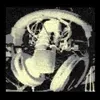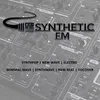Dark wave Live Radio Stations
Radio Stations
Choose a Genre
Exploring Dark Wave: The Haunting Sound of Emotional Depth and Introspection
Dark wave is a genre of music that has captivated listeners for decades, weaving together elements of post-punk, new wave, and electronic music into a sound that is as melancholic as it is atmospheric. Emerging in the late 1970s and early 1980s in Europe, dark wave became known for its introspective lyrics, brooding vocals, and the heavy use of synthesizers and drum machines. A natural extension of the gothic and post-punk movements, dark wave has evolved over the years to become a cornerstone of alternative music culture, continuing to inspire both fans and artists today.
The Roots and Evolution of Dark Wave
The term "dark wave" was coined in the early 1980s by journalists who were trying to describe the new, atmospheric sound emerging from the post-punk scene. This genre took many of the darker, more introspective elements of post-punk and gothic rock and merged them with the electronic innovations of new wave and early synthpop. The result was a unique style of music that focused on the emotional and often brooding aspects of the human experience, particularly feelings of despair, alienation, and angst.
Dark wave music often carries a sense of melancholy, yet it is the very emotional depth that gives the genre its enduring appeal. The use of atmospheric synths creates a haunting backdrop for lyrics that are steeped in introspection, despair, and reflection. Many listeners find that dark wave music resonates deeply, evoking feelings of mystery and the unknown while still tapping into raw emotions such as longing, sadness, and existential questioning.
Iconic Bands and Key Influences
Some of the most iconic bands to define dark wave include Joy Division, The Cure, Bauhaus, The Sisters of Mercy, and Depeche Mode. These bands, each influential in their own right, helped shape the sound and aesthetic of dark wave. Their music continues to resonate with both old and new generations of listeners.
Joy Division’s haunting bass lines and melancholic atmosphere, particularly in tracks like "Love Will Tear Us Apart," captured the emotional intensity of dark wave.
The Cure helped to define the genre with their early works like Seventeen Seconds and Pornography, which were filled with dark, introspective lyrics paired with eerie, atmospheric instrumentation.
Bauhaus, one of the foundational bands of the goth movement, is often credited with bringing a more theatrical, dramatic flair to dark wave, influencing both the music and fashion of the genre.
The Sisters of Mercy, with their commanding, deep vocals and dark, pulsating rhythms, built upon the gothic rock roots of dark wave to create a sound that remains iconic to this day.
Depeche Mode, while known for their synthpop sound, also contributed heavily to the darker, moodier side of electronic music, influencing the evolution of dark wave into the 1990s.
A Radio Journey Through Dark Wave
Radio stations dedicated to dark wave offer a unique experience for fans, blending classic tracks from the genre's originators with contemporary interpretations from both established and underground artists. These stations often feature a mix of haunting synths, eerie melodies, and atmospheric production that transport listeners into a world of emotional and sonic depth.
Listening to dark wave radio stations provides fans with an opportunity to immerse themselves in the genre’s evolution, discover hidden gems from lesser-known artists, and experience interviews and commentary from experts within the scene. The blend of old and new in these stations ensures that whether you are a long-time fan or a newcomer, there is always something new to discover within the dark wave universe.
Dark Wave’s Connection to the Goth Subculture
Dark wave and the goth subculture share a deeply intertwined history. The genre’s introspective and often melancholic themes resonate strongly with those who feel alienated, out of place, or like outsiders. This connection to the goth community is central to dark wave’s continued popularity, as it provides a sonic refuge for individuals who embrace the darker aspects of life and identity.
The genre’s emphasis on themes of alienation, isolation, and introspection has made it a natural soundtrack for those seeking solace in music that reflects their own emotional states. The gothic aesthetic of dark wave — marked by its dark, mysterious allure — further strengthens this connection, providing a safe space for fans to explore their own emotional depths through music.
The Enduring Appeal of Dark Wave
One of the key aspects of dark wave’s ongoing appeal is its ability to evolve while maintaining its emotional core. In the decades since its inception, the genre has expanded to include new sounds and influences, yet it remains true to the atmospheric, introspective spirit that defined it in the first place. Today, artists continue to experiment with dark wave, infusing it with elements of industrial, electronic, and ambient music while still honoring the genre's roots in post-punk and new wave.
Dark wave's ability to capture the complexities of human emotion, from sorrow to hope, from isolation to introspection, ensures that it will continue to resonate with listeners for years to come. The genre’s evocative sound and moody atmosphere create a deeply immersive experience for anyone willing to journey into its depths.
Conclusion: A Soundtrack for the Soul
Whether you’re drawn to dark wave for its melancholic melodies, its brooding vocals, or its connection to the goth subculture, one thing is clear: this genre has a timeless quality that continues to captivate listeners. Radio stations that specialize in dark wave music offer a unique chance to explore this haunting soundscape, whether you're reconnecting with classic tracks or discovering new, emerging talent. For those who seek a deeper emotional connection through music, dark wave remains an unparalleled genre that speaks to the heart of the human experience.
Dark wave is a genre of music that has captivated listeners for decades, weaving together elements of post-punk, new wave, and electronic music into a sound that is as melancholic as it is atmospheric. Emerging in the late 1970s and early 1980s in Europe, dark wave became known for its introspective lyrics, brooding vocals, and the heavy use of synthesizers and drum machines. A natural extension of the gothic and post-punk movements, dark wave has evolved over the years to become a cornerstone of alternative music culture, continuing to inspire both fans and artists today.
The Roots and Evolution of Dark Wave
The term "dark wave" was coined in the early 1980s by journalists who were trying to describe the new, atmospheric sound emerging from the post-punk scene. This genre took many of the darker, more introspective elements of post-punk and gothic rock and merged them with the electronic innovations of new wave and early synthpop. The result was a unique style of music that focused on the emotional and often brooding aspects of the human experience, particularly feelings of despair, alienation, and angst.
Dark wave music often carries a sense of melancholy, yet it is the very emotional depth that gives the genre its enduring appeal. The use of atmospheric synths creates a haunting backdrop for lyrics that are steeped in introspection, despair, and reflection. Many listeners find that dark wave music resonates deeply, evoking feelings of mystery and the unknown while still tapping into raw emotions such as longing, sadness, and existential questioning.
Iconic Bands and Key Influences
Some of the most iconic bands to define dark wave include Joy Division, The Cure, Bauhaus, The Sisters of Mercy, and Depeche Mode. These bands, each influential in their own right, helped shape the sound and aesthetic of dark wave. Their music continues to resonate with both old and new generations of listeners.
Joy Division’s haunting bass lines and melancholic atmosphere, particularly in tracks like "Love Will Tear Us Apart," captured the emotional intensity of dark wave.
The Cure helped to define the genre with their early works like Seventeen Seconds and Pornography, which were filled with dark, introspective lyrics paired with eerie, atmospheric instrumentation.
Bauhaus, one of the foundational bands of the goth movement, is often credited with bringing a more theatrical, dramatic flair to dark wave, influencing both the music and fashion of the genre.
The Sisters of Mercy, with their commanding, deep vocals and dark, pulsating rhythms, built upon the gothic rock roots of dark wave to create a sound that remains iconic to this day.
Depeche Mode, while known for their synthpop sound, also contributed heavily to the darker, moodier side of electronic music, influencing the evolution of dark wave into the 1990s.
A Radio Journey Through Dark Wave
Radio stations dedicated to dark wave offer a unique experience for fans, blending classic tracks from the genre's originators with contemporary interpretations from both established and underground artists. These stations often feature a mix of haunting synths, eerie melodies, and atmospheric production that transport listeners into a world of emotional and sonic depth.
Listening to dark wave radio stations provides fans with an opportunity to immerse themselves in the genre’s evolution, discover hidden gems from lesser-known artists, and experience interviews and commentary from experts within the scene. The blend of old and new in these stations ensures that whether you are a long-time fan or a newcomer, there is always something new to discover within the dark wave universe.
Dark Wave’s Connection to the Goth Subculture
Dark wave and the goth subculture share a deeply intertwined history. The genre’s introspective and often melancholic themes resonate strongly with those who feel alienated, out of place, or like outsiders. This connection to the goth community is central to dark wave’s continued popularity, as it provides a sonic refuge for individuals who embrace the darker aspects of life and identity.
The genre’s emphasis on themes of alienation, isolation, and introspection has made it a natural soundtrack for those seeking solace in music that reflects their own emotional states. The gothic aesthetic of dark wave — marked by its dark, mysterious allure — further strengthens this connection, providing a safe space for fans to explore their own emotional depths through music.
The Enduring Appeal of Dark Wave
One of the key aspects of dark wave’s ongoing appeal is its ability to evolve while maintaining its emotional core. In the decades since its inception, the genre has expanded to include new sounds and influences, yet it remains true to the atmospheric, introspective spirit that defined it in the first place. Today, artists continue to experiment with dark wave, infusing it with elements of industrial, electronic, and ambient music while still honoring the genre's roots in post-punk and new wave.
Dark wave's ability to capture the complexities of human emotion, from sorrow to hope, from isolation to introspection, ensures that it will continue to resonate with listeners for years to come. The genre’s evocative sound and moody atmosphere create a deeply immersive experience for anyone willing to journey into its depths.
Conclusion: A Soundtrack for the Soul
Whether you’re drawn to dark wave for its melancholic melodies, its brooding vocals, or its connection to the goth subculture, one thing is clear: this genre has a timeless quality that continues to captivate listeners. Radio stations that specialize in dark wave music offer a unique chance to explore this haunting soundscape, whether you're reconnecting with classic tracks or discovering new, emerging talent. For those who seek a deeper emotional connection through music, dark wave remains an unparalleled genre that speaks to the heart of the human experience.





